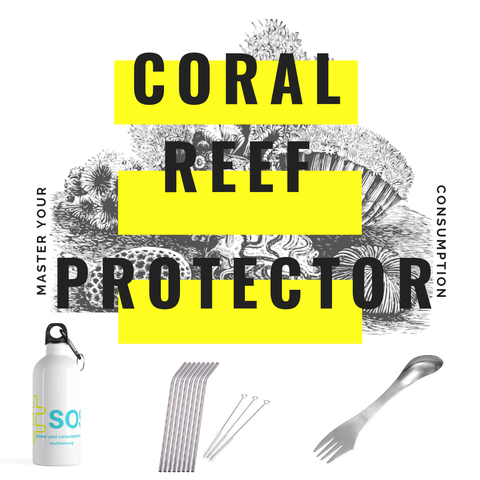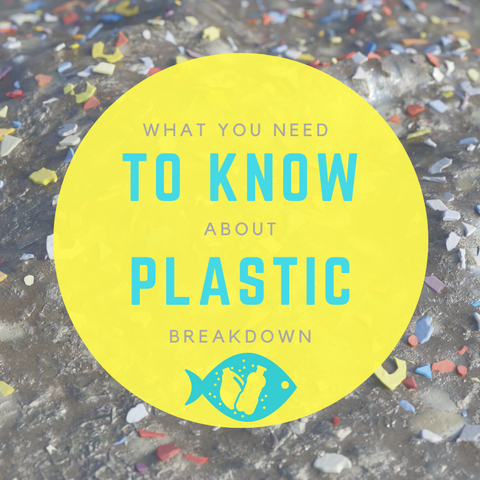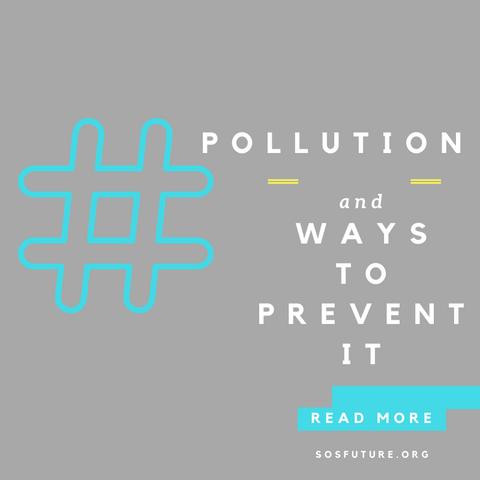The Alarming Effects Of Pollution On Coral Reef
Most islands especially those on the Caribbean plate, owe their characteristic beauty to the coral reefs. These marine animals form a unique array of colors on their exoskeleton and are responsible for the glamour of water life. Some call them the gatekeepers of the marine world, maybe because of their significant role in protecting the shorelines and much more.

Over the years, many tourist industries have built a fortune out of these reefs – from the Scuba divers that could go all the way to the Caribbean just to admire the coral reefs and their symbiotic interplay with other marine lives, to those who just enjoy going on snorkel tour for the same effect. Just picture the beautiful backdrop of most the Caribbean islands and you will get the full effect the coral reefs can have on a space.
While the benefits or values these organisms can offer to the earth and humans are unending, they have been sadly short sleeved by harmful effects of inorganic chemicals, improper sewage disposal, air pollutants and sometimes excess nutrients. Let’s take a sneak peek into the possible cons these pollutants may have on these gatekeepers of the marine world.
Organic pollutants and the growth rate of Coral Reefs – what to expect
Pollution, unfortunately, is one of the main problems that affect our corals. From oil spillages, fertilizer dumping and plastics been dropped in our oceans, the long term effects on the coral reefs is immeasurable. For one, there is an increase in nitrogen from the runoff fertilizers from farms and lawns, the toxins from the sewage from industries and communities greatly lead to a surge in the growth of algae which deplete the water’s dissolved oxygen. As it’s no secret that living things need oxygen to live and grow, this turn of event will invariably suffocate the coral reefs and other marine life.
Deforestation, construction, mining and some other land activities cause settling in rivers. And as one would expect, if water from these sources flows into the ocean, they end up covering the corals and depriving them of light which is their major source of growth. Another factor to consider in this light is the alarming rate of deforestation and the role they play. Also due to increase in air pollution and global warming, harmful substances and toxins in the marine world are also on the rise and most coral reefs can’t survive in places with high temperature due to little dissolved oxygen levels.
Effect of pollution on the color of coral reefs

The term here is coral bleaching. Pollutants will cause these eco-friendly organisms to expel the algae (zooxanthellae) which help keep their color. Once this alga is gone, the coral becomes white, pale or totally lost their attractiveness. Are these algae that important to the survival of the coral reefs? The answer is – more than you can possibly imagine! The later gets the bulk of energy it needs from these algae therefore once they are expelled after bleaching, the coral reefs will begin to starve and more often death follows.
That said, the culprit here is usually extreme changes in temperature and in recent decades, there’s been a global call to pay attention to climate change and ozone layer depletion. The less attention we pay to protect our environment, the more we endear all of creation to the harmful effects of global warming.
Corals hold lots of promises for medical research – pollutants are not letting them thrive!
We’ve been glued to test tubes and microscope in the hope that maybe the next sample will make humanity scream eureka again in medicines and pharmaceutical researches. The new wave in this area for about a decade now has been bio-prospecting in terrestrial terrains and the marine world is not left untouched. A number of researchers are shining the light on the coral ecosystem to develop new medicines that will be effective in the management of ulcers, labor pain, asthma, and heart and infectious diseases. Some even refer to the coral system has the medicine reservoir of the 21st century.
Now you can infer the greater harm these pollutants bring not just on the coral reefs but on us all. And ironically, the activities of man contribute more than any other to the pollutants that affect these beautiful creatures.
The more coral reefs that die, the less the money we make
The coral system is a hidden treasure, an untapped mine that houses the money bag. It has been reported that the coral reefs generate close to $375 billion each year – that’s a whole lot to be swept under the rug. It supports various aspects of the global economy, from food source to tourist attraction to jobs. Recently, due to an increase in population, the demand for food has increased leading to over-fishing; this affects the ecological balance.
As much as coral reefs are one of the best tourist attractions, they tend to always be a careless tourist who always causes unknown damage to the coral reefs. They touch them when they shouldn’t, they stir up sediments, they harvest corals for sales and all this eventually lead to a decrease in the coral ecosystem.
We also tend to forget that the coral reefs also act a buffer against the incoming waves and the loss of the coral reefs results in floods, and storm and those results in the loss of life and properties which is detrimental to the economy.
Indeed, the effects of pollutants on these biologically diverse species are seemingly infinite. When coral reefs are kept healthy and protected from environmental and natural threats, we have much more to benefit – better coastlines, fewer storms and erosion, healthier kinds of seafood and crops, improved medicines, recreation and of course more jobs and money to many.
Therefore, as quest to explore technologies, build industries and make unique marks on the sand of discovery is on the increase, one should always remember these collateral beauties and the effects that careless disposal of toxins will have on them and us all.
TO HELP US CONTINUE WITH OUR MISSION YOU CAN:
Thank you, thank you, thank you, we could not do it without you!
BUY ONE OF ECO-FRIENDLY PRODUCTS:
DONATE :

The Coral Reef Protector Set to support our cause:
READ MORE:
How Recycling helps the environment
Pollution and ways to prevent pollution
How to be More Eco-Friendly
How Bad Are Pollutants Affecting The Ecosystem?
How To Compost At Home?
What you need to know about plastic breakdown
How ships are affecting the environment
How To Detect Shark In Our Daily Products?





Bravo pour ce beau travail de recherches et connaissances pour la protection des récifs de coraux et de la faune marine.
Nous devons protéger la mer ainsi que la nature en général pour laisser une terre saine aux générations futures. N’oublions pas que nous sommes sur terre en transit.
Alors n’abimons pas notre belle escale au soleil.